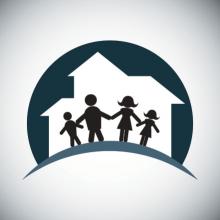exclusive language

Until recently, I had always been in the majority. I am Caucasian, middle-class, healthy, and always did well in school. I had never had a personal label others would speak carefully about so as not to offend me. I had never been hurt by words people tossed around ignorantly to describe me. When taught appropriate ways to refer to a racial or ethnic group, I did not exactly understand why some words were preferable over others. Still, because I generally did as I was told, I followed the social rules. It certainly did not make much difference to me. In my preparation to become a teacher, learning “person-first” language (such as, “a child with a learning disability” rather than, “a learning disabled child”) was easy enough, even if I could not identify with the reason behind it.
I still cannot pretend to understand what it feels like to be the subject of the examples I described above. However, I have come to a point in life where I am in the minority and the language people choose to use stings and isolates. I am 27, single, and my father has passed away. It seems everywhere I turn in the Christian world — churches, organizations, politicians — I am excluded, because I am not part of a family.